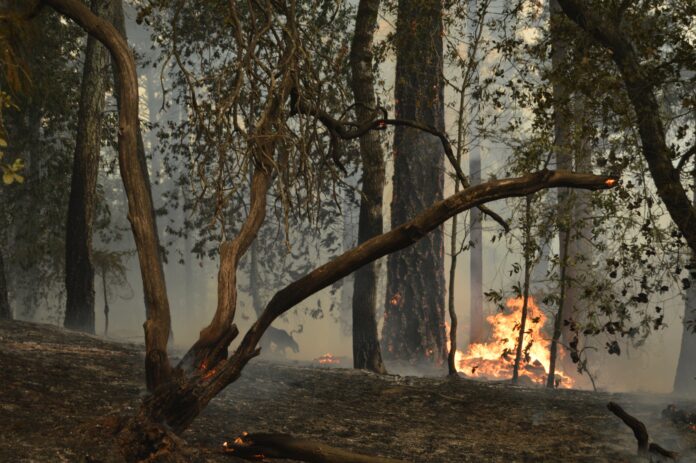“To name something is to own it,” is a statement typically flung around in semiotics dissertations and dopey Thomas Friedman editorials. But now the North Bay faces a sensitive and non-academic naming issue of its own. If to name it is to own it, who will own the fires?
So far it looks like “Wine Country Fires” is emerging as a potential consensus choice, but there’s a hedge for the moment in the media.
It’s too soon.
Numerous references to the “so-called” wine country fires” have appeared throughout the week in publications and online sites ranging from the local Press Democrat to the Mercury News to MarijuanaDoctor.com to the East Bay Times.
“The so-called wine country fires” has become something of a placeholder.
“So-called” by whom? I never called it that. Did you? Who is this patient-zero who first uttered the phrase “Wine Country Fires,” without the tactful restraint of a qualifying “so-called”?
An informal survey undertaken this week revealed scoffing, repulsion and shrugging fatalism in the face of “Wine Country Fires” as the culturally accepted catch-all for the series of fires that raged through the region the past couple of weeks.
People don’t seem to like “Wine Country Fires” much, and why is that?
In some measure, “so-called” is what you say when you don’t want to say the thing that “some people” are saying (or promoting)—but might, in the current scenario, be a little crass and awkward to freely unveil to a victimized and fire-stoked public.
Are they “so-called” for the time being because of generalized unease, or outrage, about how “Wine Country Fires” puts the wine industry first on the victim list in the rendering of the horrific events and their aftermath?
So-called or not, it is hard to argue against the potential marketing and promotional benefits to the industry should “Wine Country Fires” emerge as the consensus choice.
Before the fires, wine country was already taking a beating from environmentalists and the neighbors insofar that questions about “peak wine” were on the civic agenda in the grape-crowded hills and dales of Napa and Sonoma counties.
The built-in emphasis that Wine Country Fires puts on the destruction that met wine country may serve to extinguish some of that debate, given the industry’s critical role in the regional economy, which ripples into every imaginable corner of civic life—hotels, gas stations, restaurants, retail, the media.
Many residents and workers here in some way or another rely on the wine-tourism economy, so an advocate for “Wine Country Fires” might say that it’s just an accurate reflection and extension of an already-established regional appellation. It doesn’t leave anyone out, since everyone relies on or interacts with the wine country in some way or another.
Another might argue, “Wine Country Fires” is a vulgar appropriation of disaster for the purposes of marketing and promotion.
It’s a touchy subject. It may even be a so-called moment of truth.









